Australia’s First Cops Were Criminals. Little Has Changed.
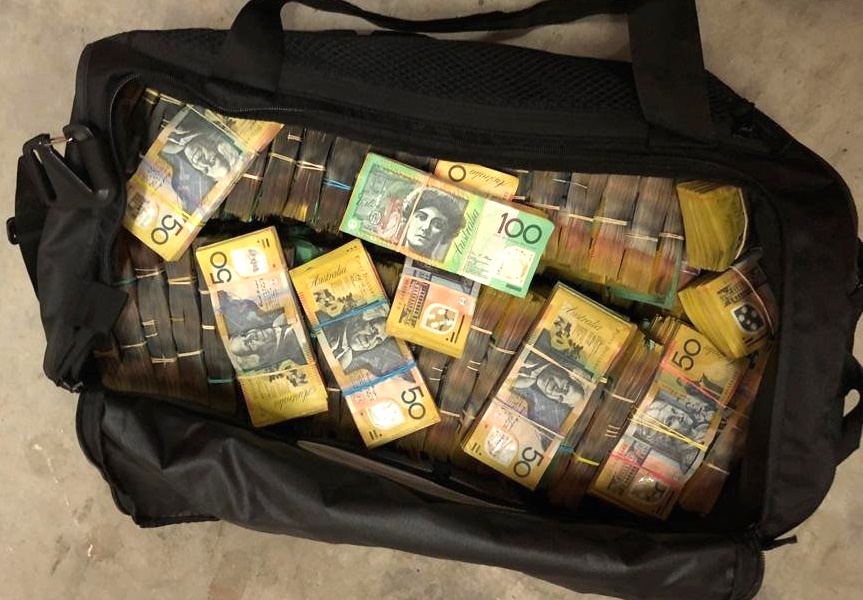
If you wanted to create an honest police force, the last thing you’d do is recruit criminals. But that is exactly how Australia’s first police force was created.
When Australia was first stolen from its indigenous inhabitants, the country had no formal police force. In response, the Marines of the Royal Navy assumed this responsibility after arriving to New South Wales in January of 1788. This provisional police force proved insufficient for the growing law enforcement needs of the newly developing country.
The problems were exacerbated when an economic crisis hit and the government established a rationing program. The lack of basic goods caused insecurity and fear among residents, and crime rates began to soar.
The Night Watch Program
The inability of the Marines of the Royal Navy to control rising crime rates highlighted the need for a local police force. The problem was, most of the country’s new residents were criminals – hardly the ideal starting seed for a police force.
Admiral Arthur Phillip, the first Governor of New South Wales who led the British settlement and colonization of Australia, came up with an idea. With convicts being the only human resources available to him, Phillip tasked twelve of the better-behaved individuals with the responsibility of “night watch”.
These twelve convicts-turned-police officers were divided into 4 groups assigned to different sectors of New South Wales. In 1790, the Night Watch program was expanded to the city of Sydney. A new group of convicts joined the pre-existing Sydney Foot Police, allowing the enforcement area to expand into Toongabbie, Hawkesbury, and Parramatta.
In 1796, Phillips’ successor, Governor John Hunter, modelled this larger force after the London Police Department. This new organization placed police constables under the management of local magistrates. After 30 years, the Sydney department had grown to over 60 constables in several districts, most of whom were ex-convicts.
Additionally, the force had grown to include several new units including the Border Police, Mounted Police, Water Police and the Mounted Aboriginal Police.
By the mid 1800s century, the government passed the Police Recruiting Act which allowed the police department to recruit individuals from the British Isles as well. Recruits were given a free fare to come to Australia in exchange for three years of police service.
Historical records claim the Night Watch and its offshoots were successful at controlling and reducing crime throughout Australia, a “surprising” result for a police force created of convicts.
What is not so surprising is that these convict-descended police forces have grown into major cesspools, where rampant corruption is the norm.
Australian Police Get Away With Murder (Literally)
Australian police forces vigorously resist any attempt at independent scrutiny. And they usually get their way. In return for acting as political enforcers and revenue raisers, Australian federal and state governments largely turn a blind eye to rampant corruption in the federal and state police forces. When a member of the public wishes to make a complaint about the police, state ombudsman and ‘public integrity’ agencies will typically tell the complainant they most first lodge a complaint with the police. Needless to say, this ridiculous scenario of allowing police to investigate themselves guarantees a continuance of the corrupt status quo.
This fox-in-charge-of-the-henhouse arrangement ensures the extremely lucrative illegal drug trade thrives in Australia. Of the world’s almost 200 recognized nations, Australia ranks alongside New Zealand and the United States as having the highest per capita use of cocaine, ecstacy, amphetamines, cannabis and opioid drugs[1]. Needless to say, you don’t become one of the world’s very worst illicit drug-using nations without lots of help from corrupt police, politicians and border officials.
As with the police, don’t expect our corrupt border officials to change anytime soon. In response to a parliamentary inquiry into the integrity of Australia’s borders, the Australian Commission for Law Enforcement Integrity said allegations of drug use, bribes, and facilitation of drug importation and terrorism financing by agriculture department officers were unable to be investigated because of gaps in the federal anti-corruption watchdog’s powers.
Royal Commissions and Inquiries Always Find Rampant Police Corruption
Despite the free reign largely awarded to Australian police forces, there have been a number of occasions where adverse publicity and political pressure became too great for their government masters to ignore.
When the Royal Commission into the New South Wales Police Service, also known as the Wood Royal Commission, commenced in 1995, New South Wales Police Commissioner Tony Lauer repeated the textbook standard mantra that corruption in the NSW Police was not systemic or entrenched. Lauer even provided a map to the commission purporting to show areas guaranteed to be free from any systemic misconduct.
Among the precincts Lauer guaranteed to be free of corruption was the notorious Kings Cross patrol, which would later prove itself to be the most egregious participant in corrupt and criminal activities. The Commission promptly uncovered hundreds of instances of bribery, money laundering, drug trafficking, fabrication of evidence, destruction of evidence, fraud and serious assaults in the Criminal Investigation Branch (CIB) at Kings Cross. Kings Cross detectives maintained corrupt relationships with major drug traffickers and other local criminals, collecting thousands of dollars per week in “rent”. This corrupt practice was known in police circles as “the laugh”.
The Commission also discovered that a group of NSW detectives were actively protecting a syndicate of pedophiles and hebophiles (the latter target underage teens in early stages of puberty, typically 11-14 year olds). Members of this syndicate also conducted an amphetamine-trafficking enterprise to raise money for police bribes and the high price of illicit materials and services.
The relationship between the syndicate and the group of corrupt detectives was extensive and multifaceted, including regular bribe payments in exchange for advance warning of law enforcement scrutiny, consignment of large amounts of methamphetamine to syndicate members on a profit-sharing basis and the planning of insurance frauds and financial crimes. The detective closest to the network, Larry Churchill, also shared some of the hebephilic tendencies of network members.
The Commission was also highly critical of police, prosecutors and public servants in their approach to the prosecution of sex offences against minors.
The sensational revelations pouring out of the Commission hearings combined with Lauer’s emphatic insistence that corruption was a non-issue quickly rendered his position as Commissioner untenable. He resigned shortly after the publication of the Commission’s initial report.
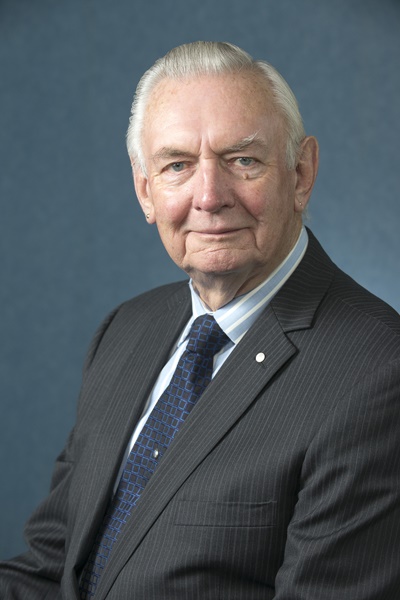 Former NSW Police Commissioner Tony Lauer, who laughably insisted the notorious Kings Cross was completely free of police corruption.
Former NSW Police Commissioner Tony Lauer, who laughably insisted the notorious Kings Cross was completely free of police corruption.
In 2004, a Police Integrity Commission report lamented that, almost a decade on from the Wood Commission, there had been no change in police culture, and any change would be difficult to bring about. The 532-page report found 40 former and three serving officers guilty of misconduct. Substantial allegations also remained against a further ten former and 6 serving officers. All were involved in an investigation, Operation Florida, sparked in 2000 when a drug dealer got fed up with being repeatedly ripped off by corrupt police and took legal advice to complain to the State Crime Commission.
The Queensland Fitzgerald Inquiry
In response to a series of damning media exposes, in 1987 Queensland deputy premier Bill Gunn commissioned what would become known as the Fitzgerald Inquiry. The inquiry was initially expected to last around six weeks; instead, it spent almost two years conducting a comprehensive investigation of long-term, systemic political corruption and abuse of power in Queensland.
The inquiry found extensive rot within Queensland police that extended all the way to the top. Among the high-profile scalps claimed were Queensland police commissioner Sir Terry Lewis and assistant commissioner Graeme Parker. Corrupt policeman Jack Herbert rolled over to the enquiry, describing how he acted as bagman, collecting bribes for Lewis from 1980. Lewis himself had been a bagman for former commissioner Francis Bischof. Lewis was convicted (and subsequently stripped of his knighthood).
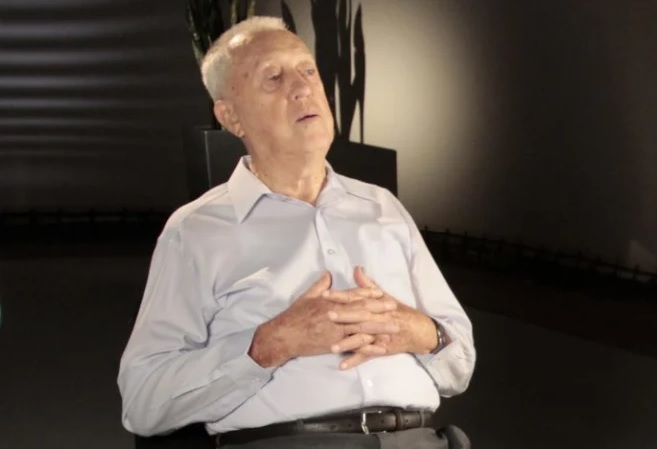 Disgraced former Queensland Police Commissioner Terry Lewis remains unrepentant and insists he has nothing to apologize for.
Disgraced former Queensland Police Commissioner Terry Lewis remains unrepentant and insists he has nothing to apologize for.
The revelations also led to the resignation of shady Premier Sir Joh Bjelke-Petersen, the calling of two by-elections, the jailing of three former ministers and contributed to the end of the National Party of Australia’s 32-year run as the governing political party in Queensland.
The Fitzgerald Inquiry identified two main types of police misconduct enmeshed within police culture: “Verballing, or the fabrication with or tampering with evidence, and corruption, or the taking of bribes or other illicitly earned money”.
As with NSW, little has changed in Queensland policing since the Fitzgerald Inquiry. In fact, one group of advocates says the Queensland police culture is now “way worse” than before the landmark reforms of the Fitzgerald inquiry. Justice advocate Renee Eaves had her personal details accessed on the police database 1,400 times by about 400 officers. She now supports victims of police misconduct and in August 2018 started the group with other leading advocates, including Narelle Dawson-Wells, an experienced clinical psychologist and wife of former Queensland attorney general Dean Wells. Four years ago, Dawson-Wells was charged by police with perjury, after she gave evidence at the trial of a man she claimed sexually assaulted her.
“Things are way worse than they were pre-Fitzgerald. We are far worse,” Eaves said.
In 2018, the Guardian revealed Queensland police shredded a woman’s rape statement – having not previously spoken to her or investigated the claim. When the victim told the assigned detective about a suicide attempt she recently made, he responded by saying he had a “limited amount of patience” for her and that she seemed to want police to fix her problems.
Also in 2018, the Brisbane Times reported on a case of a woman whose personal information was accessed by a police officer, and then passed to her abusive former partner.
In August of that year, a constable from a station in Brisbane’s south was found guilty of groping a female colleague’s breast. He told the jury during the trial that pinching and poking was common at the station, and that a male officer flicked his genitals, the Courier-Mail reported.
Eaves said she had been contacted by many people who believed the police inappropriately accessed their personal data. The Guardian reported that Queensland police conducted 59 internal investigations into computer hacking during a 13-month period, and took no further action in 52 of those cases.
Former Gold Coast police officer whistle-blower Paul Carney medically retired from the police service in 2010 after calling out corrupt practices. He subsequently started a website critical of particular police officers and launched a civil court case.
In 2015, Carney had a verbal altercation at a Brisbane pool with a former colleague, who now worked for the Australian Federal Police. The former colleague was one of the officers Carney had criticised on the website. Carney says it was a chance encounter. Carney said he shouted at the officer, Stephen Illidge, to stay away from his belongings and called him corrupt. Despite having been in the water for about 20 minutes, police charged Carney with stalking with violence. The vexatious charge occurred three days before Carney’s civil suit against Queensland police was to begin.
In order to bolster their vexatious and vindictive charge against Carney, his former employer tampered with the CCTV footage. A senior software engineer analysed the CCTV footage and noted several interruptions, where periods of up to eight minutes were unable to be viewed.
“It is my opinion that the corruption and/or video errors have been introduced post-copy as a result of human interaction with the file by both direct and intentional manipulation,” the report said.
Carney also made submissions to the court that statements made against him were “fabricated” and the result of “collusion”.
In August 2018, the Queensland office of the director of public prosecutions – which had previously given Carney the brush-off – lodged a “nolle prosequi” notice, indicating they were abandoning the charge.
Rampant Corruption in the Wild West
The Kennedy Royal Commission was established in 2002 by the state government of Western Australia to determine whether any officer of the Western Australia Police had engaged in corrupt or criminal conduct.
Had they ever. Western Australian might have a small population (around 2.6 million people) considering its huge land area, but that didn’t stop the state from punching above its weight when it came to police malfeasance. The Commission’s final report came in at over 850-pages and catalogued a litany of corrupt police practices, including – among many others – verballing, assaults, theft of money and property, perjury, perverting the course of justice and extensive involvement in the drug trade.
Among the many revelations shared with the commission were:
- Officers smoking cannabis at Scarborough CIB. The cannabis was kept hidden in the chimney section of the back office, and replenished from time to time with cannabis seized during searches carried out by the officers;
- Signatures of local Justices of the Peace regularly forged on warrant forms at Scarborough CIB;
- Executing search warrants in order to steal property;
- When made aware drug dealers were in the area, Claremont CIB attempted to execute search warrants before the Drug Squad did, with a view to locating and stealing cash;
- Officers routinely stole confiscated goods and stole items from crime scenes and searched premises;
- When City CIB investigated thefts from sports stores, a complaint was made that officers involved in the investigation had stolen some of the recovered clothing. One officer boasted that while he was interviewed regarding the complaint, the only clothing he was wearing that belonged to him was his underpants. The ‘joke’ being that all his attire except for his underwear was stolen;
- Officers assaulting suspects in order to obtain confessions or co-operation. These assaults ranged in severity from a “clip across the ear” to the administration of electric shocks and beatings with a length of hose. The use of telephone books was a favoured tactic as it reduced the risk of observable bruising.
- Two police officers broke into the BP Gnangara Service Station on Sunday 1 July 1984, using oxy-acetylene equipment to cut open a floor safe inside the premises. The owner reported that around $14,000, most of the weekends’ takings, were stored in the safe at the time of the robbery.
- One officer was so rotten he literally stole from his own mother. Morley City Fruitland was owned and operated by the parents of an officer identified by the Commission report as “M5.” This officer and his parents had a disagreement causing him to move out of their home and the cessation of his employment at the shop. M5 then enlisted the aid of another officer, “M6”, to use keys still in M5’s possession to enter the shop, unlock a safe and remove $5,348 in cash and two bank cheques.
The Commission also heard evidence regarding the investigation of the infamous Perth Mint Swindle, an especially disgraceful saga in which three brothers were wrongly imprisoned.
Raymond, Peter and Brian Mickelberg were convicted in 1983 of stealing $650,000 worth of gold from the mint. The brothers served periods ranging from nine months to eight years in jail. Despite repeated pleas extending all the way to the High Court, only Brian Mickelberg had his conviction overturned (he died in a helicopter crash in 1986).
Anthony Lewandowski was a WA detective who investigated the swindle. In an affadvit, Lewandowski admitted he and Detective Sergeant Don Hancock verballed the Mickelbergs, and that the two detectives gave perjured evidence in support of the verbals at trial and at several subsequent appeals.
The controversial Hancock enjoyed a 35-year police career in which he was able to repeatedly emerge unscathed from numerous investigations. After retirement, his luck would eventually run out. In October 2000, Hancock became the prime suspect in the fatal sniper-style shooting of Gypsy Jokers biker William Grierson in the rural WA town of Ora Banda. The bikers had allegedly behaved in a rowdy manner at Hancock’s family-owned hotel and it seems, after 35 years of delivering rough justice with impunity, Hancock once again decided to take matters into his own hands.
Unfortunately for Hancock, the bikers eventually decided to do the same. As the twelve-month anniversary of Grierson’s killing approached and the case remained unsolved, the bikers’ patience was exhausted. On 1 September 2001, 11 months after the murder, Hancock and a friend were killed in a car bombing that sent debris flying into neighbouring streets.
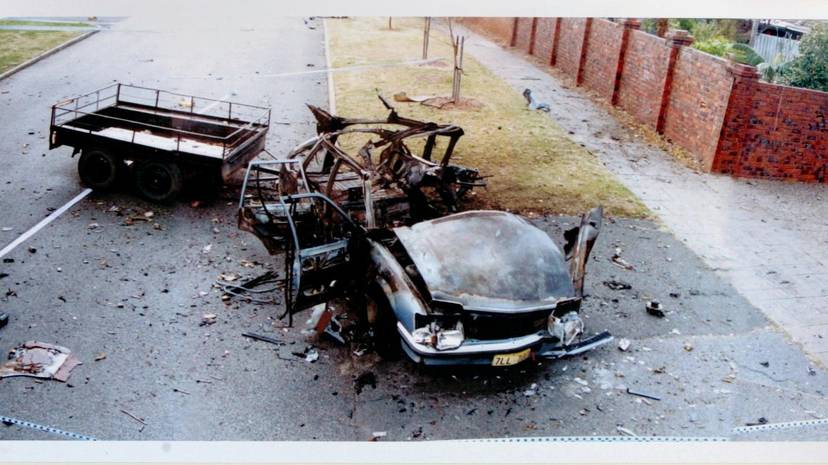 Controversial WA detective Don Hancock’s past eventually caught up with him.
Controversial WA detective Don Hancock’s past eventually caught up with him.
The WA government’s response was to introduce a raft of new “anti-bikie” laws. The role of the degenerate WA police culture in precipitating such an event was given little consideration.
As a result, corruption and misconduct allegations continue to plague the WA police. The WA Corruption and Crime Commission revealed last year 1,129 instances of misconduct were recorded for the WA police force in a three-month period (between 1 April 2019 and 30 June 2019). The overall number of WAPF allegations processed for the whole year was 2,825 — 219 more than that of 2017-2018. The police force had consistently maintained the highest number of allegations over the past year out of all WA public departments.
In July of this year, WA’s police union president predictably told a parliamentary hearing there is no systemic racism in the police force and officers are already heavily scrutinised. The reality indicates otherwise. Since July 2016, WA’s Corruption and Crime Commission has probed just eight of the 289 complaints it received claiming excessive use of police force, with the vast majority referred to the WA Police internal affairs unit. Aboriginal Legal Service WA director Peter Collins said internal police investigations rarely resulted in a complaint being upheld.
Accessing restricted information for financial reward or other nefarious purposes is a common behaviour among Australian police. In March 2019, WA Police employee Rebekah Rose Tilbury was charged with corruption over allegations she received more than $16,000 in kickbacks for releasing restricted information. The court was told Tilbury was already facing more than a dozen other charges – six of unlawful use of a computer with intent to benefit and six of unlawfully disclosing information, as well as two “minor” drugs charges.
Dealing with suppliers and administration of contracts is another problematic area in which corrupt public servants just can’t help themselves. In September 2019, a WA senior sergeant was charged with corruption and stood down from duties. The 42-year-old woman was the officer in charge of a police business unit in the Perth metropolitan area and suspicions emerged when product supply arrangements changed in 2018.
In contrast to NSW, QLD and WA, the Victorian, South Australian and Northern Territory Police forces have thus far escaped the much-needed scrutiny of a Royal Commission or Inquiry into corruption.
South Australia: Where Corruption and Denial Rules
One of the ways in which South Australia Police and their political masters avoid closer scrutiny is to portray corruption as an affliction largely confined to the eastern states. This rationalization tends to find a ready audience among South Australians, many of whom seem to harbour a degree of resentment towards their Eastern neighbours, particularly Victoria.
South Australia’s defenders have also long promoted the belief SA has a superior and more virtuous history compared to other states. They base their reasoning on the oft-repeated claims that SA was more progressive in terms of social and political development and that the state was settled by free people and no convicts.
In its favor, South Australia was the first Australian state to allow women to vote. But the claim SA was a convict-free zone is simply not true. Records obtained by Findmypast reveal two escaped convicts, Josiah James Rogers and Thomas Jones, deviously scored themselves positions in South Australia’s first paid police force in 1838.
The men were both listed as “1840s Police Constable [in] Adelaide” when they were actually convicts.
The discovery that two police constables were in fact escaped criminals was not a great moment for the Acting Governor, who expressed his “surprise and displeasure” upon their eventual discovery.
Yet, according to the book Turning Points: Chapters in South Australian History, edited by Robert Foster and Paul Sendziuk, the two police constables did not lose their jobs. Because “the work was so poorly-paid and replacements hard to find, the two men were allowed to remain in the force”.
Since then, South Australia Police has continued to show a remarkable tolerance for criminal tendencies among its members.
Perhaps the most infamous example is the disgraced Barry Moyse. Before being crowned head of SAPOL’s drug squad, Moyse presided over the south-eastern region of SA, where local fishing boats doubled as collectors of drug packages regularly dropped into the water from freighters and other watercraft. When honest migrant-turned-fisherman Mehmed (“Mick”) Skrijel learned of this racket, he thought he was doing the right thing by sharing what he knew with the local police. Little did he know they were in on the racket, and would proceed to make his life absolute hell.
His fishing boat was destroyed by fire. He then took his complaints to the NCA, after which his home was burnt, his wife’s car torched and his family harassed and assaulted. They fled to Victoria and bought a property at Digby, only for Skrijel to be falsely charged by Victoria Police in 1985 with cultivating marijuana for the purposes of trafficking. He was found guilty and served nine months in prison. Later, on appeal, his conviction was overturned because of misdirections to the jury. A new trial was ordered but the Victorian DPP decided in June 1989 not to proceed.
In 1993, the Federal Justice Minister appointed David Quick QC to investigate the events affecting Skrijel. The Report to the Federal Attorney General by Quick, dated 4th April 1995, recommended that a Royal Commission be held into those events.
There was no Royal Commission.
After Skrijel stepped forward in 1978, one of the investigating officers was none other than Detective Sergeant Barry Moyse, who was assigned to the matter in 1980. Not only was Moyse as rotten as they come, his hypocrisy was astounding. He insisted there was “no place for bent cops” in SAPOL, yet vehemently opposed calls for an inquiry into South Australia Police corruption.
When Moyse was subsequently appointed as head of SAPOL’s drug squad, one of his tasks was to promote and oversee Operation Noah, the annual anonymous telethon in which police appealed to the public for information about illegal drugs. Moyse would appear on TV, solemnly warning against the evils of illegal drugs and imploring the public to help police.
The whole thing was a sham. The corrupt Moyse used Operation Noah as an intelligence-gathering and wealth-enrichment tool. Moyse and his officers would use the anonymous tip-offs to locate and confiscate drugs, which they would then resell. This lucrative arrangement was obviously popular with Moyse’s peers, and SAPOL happily looked the other way.
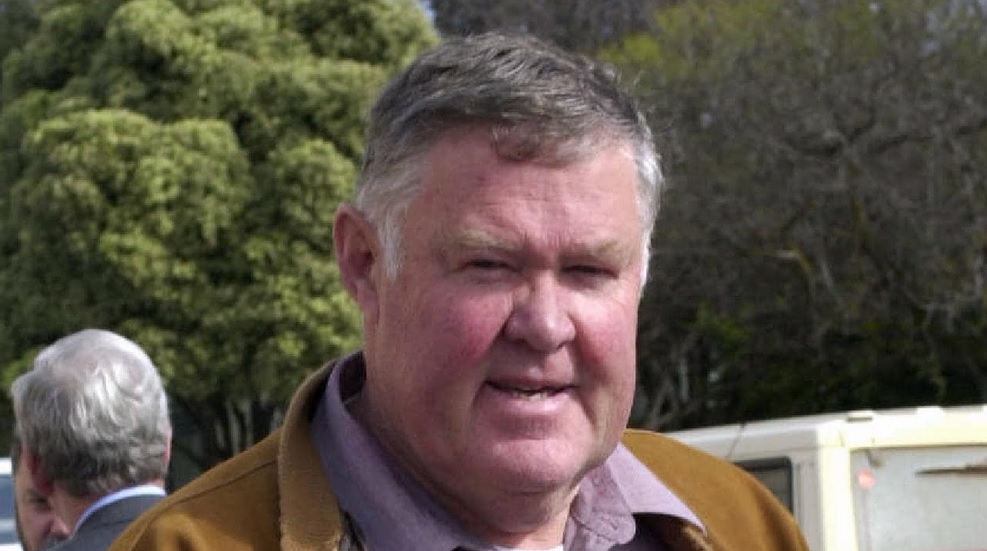
The completely rotten Barry Moyse.
The National Crime Authority, however, was not so willing to turn a blind eye and, much to SAPOL’s chagrin, investigated Moyse. In 1988, after initial denials, Moyse pleaded guilty to offences involving the sale of heroin, amphetamines and cannabis. He was sentenced to twenty years imprisonment, and died in 2010 of kidney cancer, two years after his release.
Moyse is survived by his daughter Catherine Jayne Moyse, a lawyer recently charged with corruption offences alongside disgraced former magistrate Robert Harrap.
Like father, like daughter.
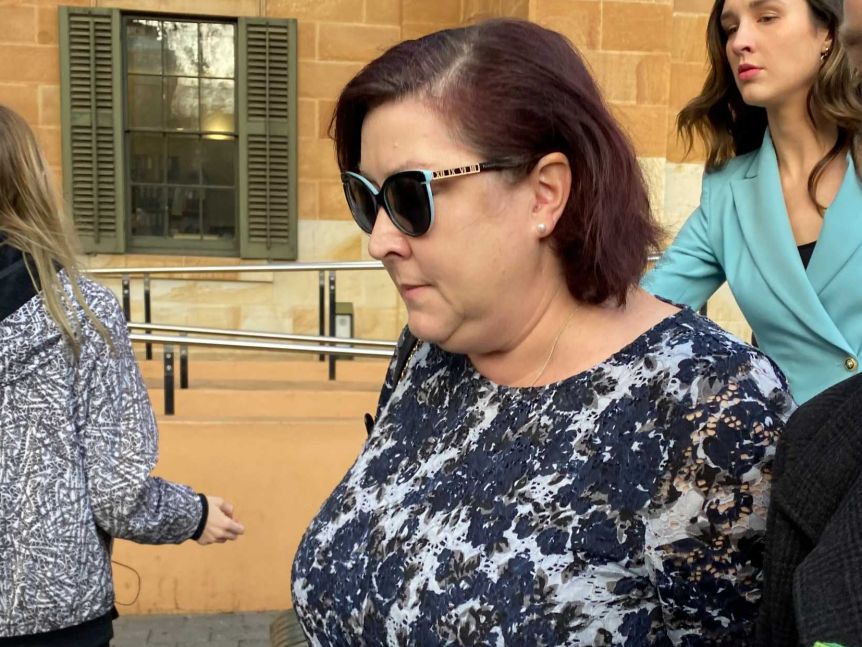 Catherine Moyse: Adelaide lawyer and daughter of the late, corrupt, disgraced, drug-dealing cop Barry Moyse.
Catherine Moyse: Adelaide lawyer and daughter of the late, corrupt, disgraced, drug-dealing cop Barry Moyse.
Also charged with corruption offences was SAPOL prosecutor Abigail Foulkes. Despite pleading guilty to her charges, Foulkes has not been suspended or dismissed but instead remains on ‘restricted duties’ with her corruption-friendly employer.
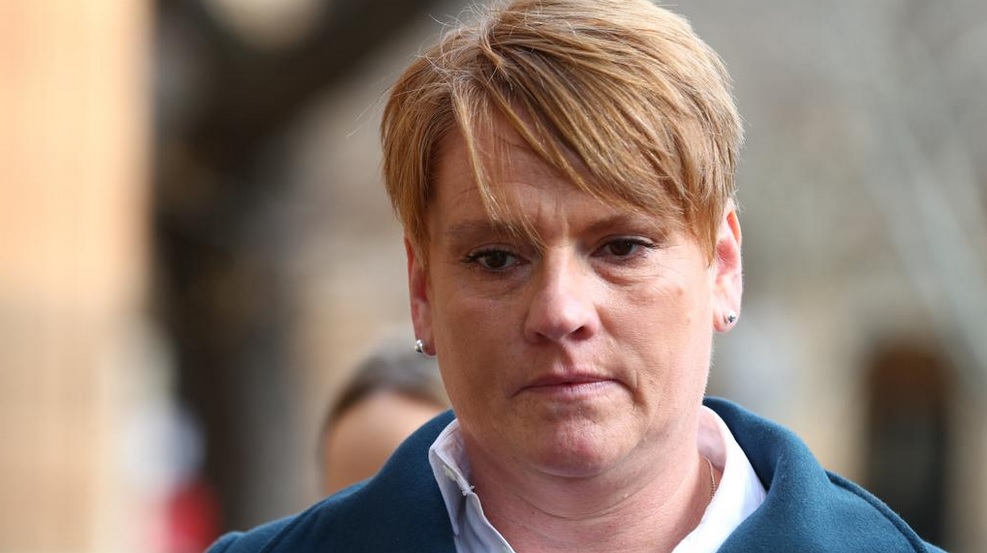
Abigail Foulkes: Plead guilty to corruption charges but still allowed to work at South Australia Police.
That little has changed at SAPOL can be further evinced by the recent treatment the putrid force dished out to Brian Stanton, a former career criminal-turned-straight. The similarities between Stanton’s case and that of Mick Skrijel’s decades earlier are haunting. When Stanton learned about the antics of a local syndicate of drug dealers and thieves in SA’s south, this time the Goolwa-Victor Harbour area, he thought he was being a good Samaritan by telling the police. Like Skrijel before him, he didn’t realize he was informing on SAPOL-protected criminals.
Like Skrijel before him, SAPOL were about to make his life hell. Rather than torch his property and force him to flee interstate, as they did with Skrijel, corrupt officers instead planted a firearm in his car and arrested him for illegal possession of said weapon. What followed was a four-year ordeal that Stanton described as “a form of mental, emotional and physical torture”. If you’ve ever had to deal with the terribly malfeasant side of SAPOL, you’ll know he was in no way exaggerating. Stanton, after admitting he’d made a lot of foolish decisions in his past, told a reporter going to SAPOL with the information was “one of the greatest mistakes of judgement I’ve made in my life”.
In an interview, Stanton said that, as a result of his previous criminal career, “I know to be a fact who controls the drug scene. I know who controls prostitution. I know who controls organized crime … and it is not who the general population think it is.”
He was talking of course, about our so-called guardians of the law. A dangerous man who needed to be silenced, Stanton found himself in an all out battle against SAPOL, who threw its full weight behind the malicious charge.
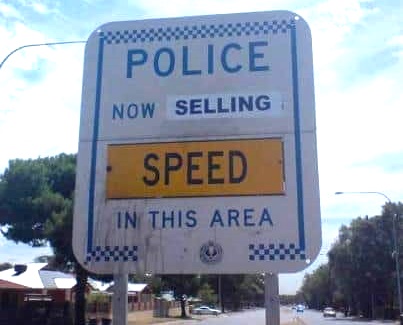
Stanton’s incredible experiences were documented in a two-part Today Tonight series, which you can view below. Stanton’s story was corroborated by a neighbour who lived near a farm where some of the illegal activities were occurring. She told Today Tonight that when she became aware of suspicious activities on the property, she contacted police, only to become the target of threats and harassment. The police did nothing, and it didn’t take her long to realize why; she would look out her window and see the police leaning against their cars, joking and chatting with the farm’s occupants, sometimes for up to an hour.
When Today Tonight approached the offending farm, multiple police cars quickly arrived, blocked the view and confiscated their camera. When it has to choose between protecting concerned members of the public or the criminals who pay them hush money, it quickly becomes apparent who SAPOL’s allegiances lie with.
So protective is SAPOL of its lucrative illegal income streams that when calls intensified last year for the decriminalization of prostitution in SA, it was the quickest and loudest entity to voice its opposition. The dubious agency claimed decriminalizing prostitution would attract criminals. Apparently, the current batch of illegal brothel owners are a bunch of darling angels.
The real reason behind SAPOL’s opposition, of course, was because the police were in no mood to lose a lucrative stream of personal enrichment, not to mention “free roots”: Extortion of brothels constitutes a lucrative SAPOL sideline.
The Australian Federales
No discussion of police corruption in Australia would be complete without mention of the thoroughly rotten Australian Federal Police, the country’s national police force.
“Law enforcement … we’re the biggest gang in the world,” boasted AFP assistant commissioner Nigel Ryan in June 2023, in a rare moment of honesty.
He should know – the AFP has been acting like a criminal gang ever since its inception.
The Australian Federal Police was formed in late 1979 by merging the former Commonwealth Police, Australian Capital Territory Police and the “notoriously corrupt” Federal Narcotics Bureau.
Officers who worked at the AFP in its early days described it as “cowboy central”.
“The Australia Federal Police had its foundations in the former Narcotics Bureau which was notoriously corrupt. Coupled with the ineptitude of the Commonwealth Police, it was never going to go well,” one senior former AFP officer told The Chronicle.
Among the litany of disgraceful scum that has polluted the AFP’s upper hierarchy was former deputy of the NSW Crime Commission Mark Standen. Later convicted of conspiracy to traffic drugs, Standen was a degenerate gambler who racked up thousands of dollars in gambling debts while in the AFP.
In typical corrupt police fashion, Standen had been allowed to join the AFP despite an initial ban imposed after he had admitted to the Stewart Royal Commission into Drug Trafficking that he had destroyed evidence and records after a drug bust (Australian police routinely put confiscated drugs back into circulation, selling them and giving them to informants as reimbursement).
Among Standen’s friends were suspected rapist and alleged murderer Neville Tween, also known as John Anderson, a paid informant to Standen when the latter worked at the National Crime Authority and later the Crime Commission. The late Tween was the prime suspect in Trudie Adams’ disappearance in June 1978. Tween was also the prime suspect in at least 14 rapes between 1971 and 1978.
Standen was arrested in 2008 and later jailed for 22 years for conspiring to import 300 kilograms of pseudoephedrine.
Fellow scumbag Allan Gregory McLean worked alongside Standen at the Narcotics Bureau and then Customs, before joining the AFP at the same time. McLean was later convicted and sentenced to 16 years’ jail for helping import millions of dollars of heroin from India in 1988.
Another textbook classic example of AFP filth was Michael Anthony Wallace, convicted of stealing $20 million worth of heroin in 1989. He was also convicted of murdering his girlfriend Zoe Zou and dumping her body.
AFP chief inspector Cliff Foster, who committed suicide in 2001, ran the AFP Drug Investigation Unit in the 1980s and had been under investigation for supplying heroin. He was also allegedly linked to an organized crime syndicate shipping huge quantities of hashish from New Zealand into Australia.
Among the honest cops who unsuccessfully tried to raise the alarm on the incurably filthy AFP were former members Wayne Sievers and Ray Cooper, and NSW detective Dr Mick Kennedy. In fact, Kennedy became a target of the AFP which, like all Australian police forces, is a vindictive farce disinterested in real crime and far more concerned with covering up its own criminality.
Kennedy was charged with making false claims of corruption about the disgracefully corrupt AFP. His allegations, which included AFP Detective Sargeant Alan Taciak, were later proven correct. Taciak rolled over during the Wood Royal Commission and named another 78 AFP cops he said were also on the take.
Despite his claims being proven true, Kennedy was never formally exonerated.
After the sensational revelations by Taciak, the federal government ordered an inquiry headed by Sydney QC Ian Harrison. Dozens of officers were named in the inquiry, but in true Aussie non-transparent fashion, the report was classified.
The Commonwealth Ombudsman, responsible for implementing recommendations of the secret report, revealed in its 1996-1997 Annual Report that a mere 7 officers had been fired and “a number of others were being investigated,” code for “the cover up is in full swing.”
As part of the continuing cover-up, the results of those further investigations were never revealed. What is known is that many others within the AFP were allowed to escape punitive action and left with golden handshakes.
So has anything changed at the AFP?
Of course not.
A group of AFP officers dubbed the “Sydney mafia” have allegedly been misappropriating hundreds of thousands of dollars’ of taxpayers’ money and goods for their own use. As a result of the revelations, the Commonwealth Director of Public Prosecutions was to assess a two-year-investigation by the Australian Commission for Law Enforcement Integrity (ACLEI), and decide the fate of a mere three officers.
Two AFP officers were sacked, and another two resigned, during the ACLEI investigation, named Operation Nambung.
All four officers involved were Protective Service Officers, who are specially trained in anti-terrorist response tactics, close protection work and are responsible for guarding the Prime Minister, foreign diplomats and Defence Force properties.
The investigation was sparked by a tip off and led to raids on the homes and offices of the four Protective Service Officers.
AFP sources revealed to News Corp they were warned not to talk about the investigation “in case it sparks a royal commission” into the wider activities of AFP protective service officers.
The Operation Nambung allegations include the fraudulent rorting of credit cards, petrol, office equipment and furniture, travel perks, AFP property, Australian Defence Force-funded assets and even a series of vehicles, the latest being a 4WD Pajero worth more than $50,000.
The officers are also accused of falsifying AFP records and time sheets.
In the previous two years there had been 17 AFP employees charged with offences, not including the potential charges under Operation Nambung. Those charges range from high range drink driving to domestic violence assaults charges, sexual offences, speeding in an unregistered vehicle and child exploitation offences.
An AFP spokesman said as “most” the charges were laid by State and territory police the AFP was unable to report how many resulted in a conviction. We’re supposed to believe the nation’s primary police force doesn’t keep these kinds of records.
When News Corp broke the story in 2021, law enforcement sources said members of the “Sydney mafia” clique were practised at standover tactics relying on fear, intimidation and retribution to coerce others to keep quiet about their illegal activities, using “dirt files” on staff and unfavourable rostering to “destroy their lives” if they spoke out.
In 2017, AFP officer Benjamin Hampton, 46, was sentenced by the NSW District Court to 22 months jail, to be released after serving a period of 11 months. Hampton pleaded guilty to receiving approximately $7,000 in cash as a bribe for releasing information from a secure AFP database. Hampton joined the AFP in 1999 and served in various roles, including as a Close Personal Protection Branch officer where he provided security protection for Australian politicians and foreign dignitaries.
It appears Hampton was planning to skip the country: Shortly before appearing in court in 2014 he sold his $1 million home and had purchased a ticket to fly to Slovenia, where his father lived. Slovenia does not have an extradition treaty with Australia.
In May 2019, Canberra AFP officer Joshua Rod Tiffen and his twin brother Kenan Lee Tiffen, both 41, were arrested after police found a large quantity of child pornography, hidden cameras and a device transmitting offensive material at their home. More than 400 videos were seized during the raid, many featuring girls between 12 and 14, and some containing even younger children.
The raid came after tip-offs by two women. One of the women who alerted police had made several adult films with Joshua Tiffen, according to police. The woman said Tiffen had shown her images of children on his computer, and claimed she was shown an image of a three- or four-year-old girl revealing her genitals. Tiffen said he would talk to female children and get them to do what he wanted.
A different woman made allegations about Kenan Tiffen after going on several dates with him. That woman said Kenan Tiffen told her he had a secret but that she must not judge him, before showing her about 50 child abuse images.
The court heard police also found a camera that was in the process of transmitting offensive material, although they could not say whether it was receiving or sending footage. Court documents also allege hidden cameras were found in three bedrooms the men had rented to female tenants.
In November 2019, the twins faced a raft of additional charges, including distributing intimate images without consent and further counts of possessing child exploitation material.
The twins were found guilty of their charges by the ACT Magistrates Court in 2022, but are currently appealing the decision. They have had some success, not because they are innocent of the charges, but because the geniuses investigating them didn’t follow proper procedures.
The magistrate presiding over the appeal said it was clear the police officers involved in the case made errors when handling important pieces of evidence and found evidence from Joshua Tiffen’s laptop should not have been admitted as it had been seized unlawfully. However, she dismissed the part of the brothers’ appeal relating to the seizure of his mobile phone.
Conclusion
Australia’s first police were convicts, and some 232 years later, the country’s police forces are still dominated by even dirtier criminals.
References
- United Nations Office on Drugs and Crime. World Drug Report 2020 (United Nations publication, Sales No. E.20.XI.6): Pages 15, 43 and 44.
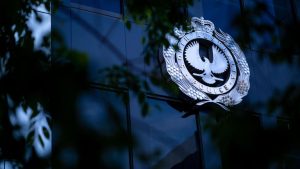

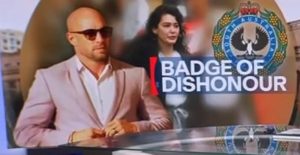
Now Australia is sending its criminals to Canada to operate Casino interests. They have totally corrupted our race horse industry and gambling sites. Keep your Ned Costello’s in your own degenerate country.
This is a website highlighting police corruption, with a focus on South Australia. We are not an international distribution point for local criminals. If Australian criminals are pervading Canada, telling the author of this article to keep them here in Australia is a most pointless activity. Perhaps direct your angst towards the corrupt Canadian authorities who allow these criminals to operate in your country?
“Free Roots” ?
It’s Rape.
It’s not a favour.
It’s not a friendly gesture.
It’s not a networking perk, or a promo sample.
When someone with the power to follow through on threats such as (if you don’t give me a free root) – ‘I will arrest you, I’ll have your kids taken away, I’ll blacklist you from renting, I’ll get the ATO to freeze everything you’ve got….’ and even then ‘if you don’t make me happy, I’ll do xyz anyway. No one will believe you if you tell them.’
Coercion, blackmail, assault and/or threats of physical, emotional or financial harm – all nullify any veneer of consent.
It’s rape.n
The use of inverted commas clearly indicates the author was paraphrasing the cops. The article makes it quite clear the author strongly disapproves of their interactions with the prostitution industry, which thrives on exploitation and human trafficking. Perhaps you need to re-read it. After doing so, I suggest you take out your angst on the police, rather than the people who call out their corruption and sleaze.
Your writing is a masterclass in subtlety — each word chosen with care, and every sentence a work of art.